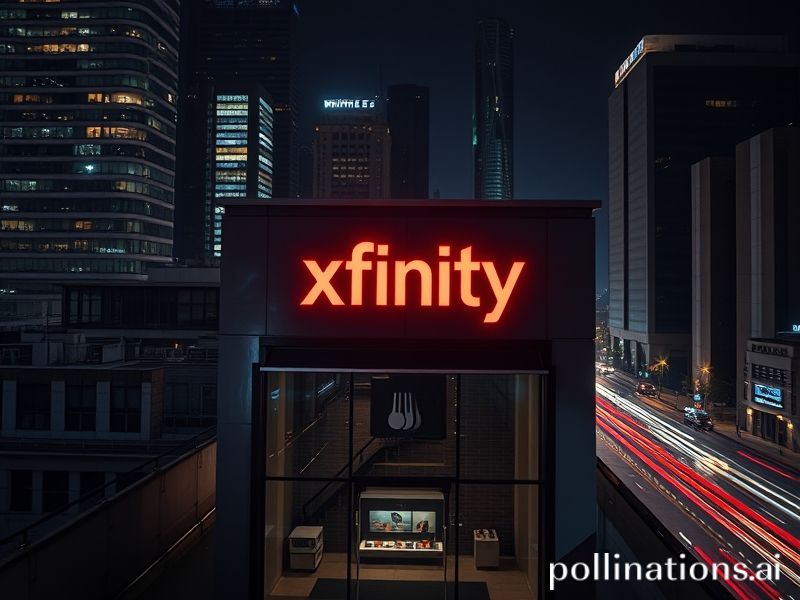Xfinity Without Borders: How America’s Favorite Cable Giant Became the Accidental ISP of the Post-American World
KABUL—In a windowless basement that used to be a Taliban command post, twenty-something Afghans now huddle around blinking LED lights and a router that insists on calling itself “XFINITY_5G_EXT,” the underscore a quiet act of rebellion against the Pashto script. The irony is not lost on them: a brand that means “limitless” in corporate press releases yet still can’t reach the upstairs kitchen without a mesh node. Welcome to the global after-party of Comcast’s empire—an after-party where the hors d’oeuvres are data caps and the DJ keeps remixing the concept of “unlimited.”
From Bogotá to Bucharest, Xfinity is less a cable company and more a diplomatic attaché of late-stage capitalism. It travels on the backs of American expats who insist on streaming the Philadelphia Eagles in 4K while their Guatemalan neighbors share one prepaid SIM card among eight cousins. The brand has become the new Coca-Cola: you can find it almost anywhere U.S. foreign policy has left behind a runway long enough for a contractor’s Gulfstream.
Consider Lagos, where generators roar like lions outside compounds that glow with Xfinity-branded X1 boxes smuggled in diplomatic pouches. The boxes work—sort of—because some enterprising kid in Surulere re-flashed the firmware to ignore North American geofencing. The UN calls it “capacity building.” The kid calls it “rent.” Either way, Comcast’s legal department is drafting memos in Comic Sans.
Of course, the company swears it has no international ambitions beyond “supporting our valued customers wherever they roam.” Translation: if you’re willing to pay $120 for a gigabit plan in Des Moines, we’ll pretend we don’t notice when you VPN that signal to a rooftop in Beirut. The result is a shadow internet infrastructure stitched together by homesick soldiers, petroleum engineers, and crypto evangelists—the holy trinity of modern mercantilism.
Meanwhile, in the European Union, regulators treat Comcast like an invasive species. Brussels has rules about data retention, content quotas, and the precise number of on-screen warnings required before exposing minors to American reality television. Xfinity sidesteps this by existing in a Schrödinger-like state: simultaneously “not operating in the EU” and yet mysteriously available to every U.S. embassy, naval base, and Fulbright scholar with a .gov email address. German privacy activists have taken to calling the phenomenon “Kabelkriechen”—cable creep—because even the language sounds like it’s buffering.
The broader significance? We are witnessing the privatization of national identity. When a Syrian dissident uploads body-cam footage of a protest using his cousin’s Xfinity hotspot in Dearborn, whose free speech is it exactly—his, Comcast’s, or the algorithm that throttles uploads during “congestion events” (read: whenever CNN is on)? The answer, like the download speeds, varies by zip code.
Back in Kabul, the router finally connects. The Afghans queue up the latest season of “The Bear,” subtitles in Dari, buffering icon spinning like a Sufi dervish. One of them—an engineering student who learned English from bootleg DVDs—turns to me and deadpans, “So this is what you call streaming freedom?” I start to explain net neutrality, then stop. Some questions are better left to load overnight.
The world keeps shrinking, one promotional bundle at a time. Tomorrow Comcast will announce a “global roaming pass” with a name like VoyagerMax, and diplomats will applaud politely while somewhere in Caracas a teenager jailbreaks it before lunch. The cycle repeats, faster every year, until the only thing left that isn’t Xfinity-branded is the space between stars—and even that, rumor has it, has a waiting list.







